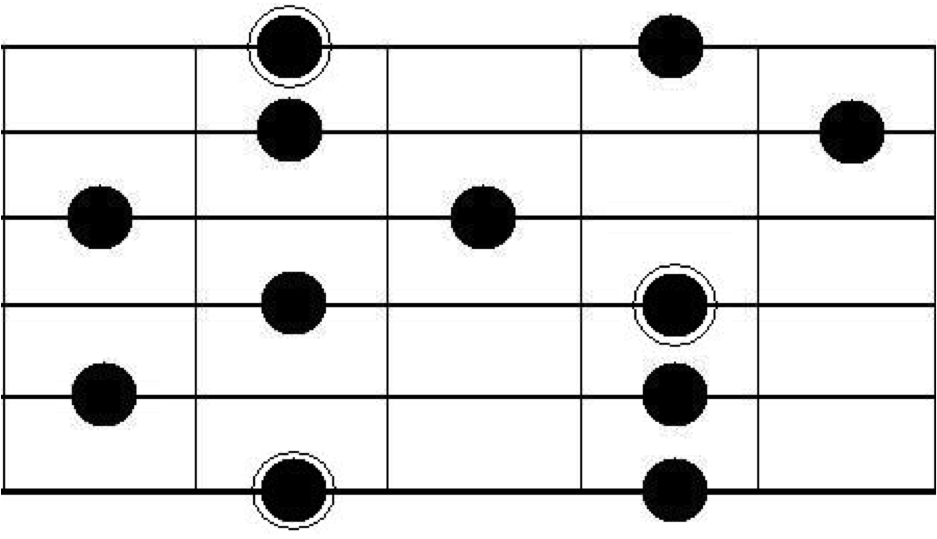Why Your Blues Guitar Improvisation Doesn’t Sound Anything Like The Best Blues Guitarists
So you are starting to play your own blues guitar solos. Great! You have a blast of a time improvising. But soon you’ll start comparing yourself to other guitarist and sooner or later your progress comes to a halt and you find yourself not sounding anything like the guitarists that you listen to. This is how most guitarists stops progressing, no matter how much they practice their progress only seems to take small babysteps. On top of this, the worst thing is that you don’t even know how to improve your guitar playing.
While this frustration is shared by many guitarists, there are solutions to this. Ofcourse there are many reasons why a novice guitarists’ playing will not sound anything like an experienced guitarist. All of these reasons should be addressed seperatly and taken care of in your personal learning and practice plan. But there’s one very prominent reason why your blues guitar solos don’t sound great; that reason is the exact notes you play (note choice) and the knowledge of the scales that contain those notes.
Let me ask you this; “Did you know that the minor pentatonic scale isn’t the best choice to play over a blues chord progression?” In fact, some notes will even ‘clash’ quite a bit.
Spelling Out The Notes
Whenever you come across a scale and you want to know if you can use this scale over a certain chord or series of chords, it’s a great idea to compare the notes in the scale with the notes that are in the chord(s) that we want to compare.
To analyse this we’re going to spell out the notes in the Am pentatonic scale, which are:
A C D E G
Here are the notes in the A7 chord:
A C# E G
The C note from the pentatonic scale will sound pretty harsh against the C# note of the A7 chord. You can try this for yourself; play these two notes simultaneously on guitar and listen to the dissonance that this creates.
Ofcourse the minor pentatonic is the first scale to get into if you learn to improvise, but we want to move away from only playing this scale.
Solutions
While it’s true that some people like the dissonance that is caused by playing the C-note over the A7 chord, most experienced blues guitarists will choose to either:
-Not use the minor pentatonic scale at all (that’s the main reason why many beginners on blues guitar improvisation hear that what they play doesn’t sound anything like their favourite players, but they don’t know that they actually are using different scales).
-Use the minor pentatonic scale but alter some of the notes.
-Use a variety of techniques to alter the C-note (if we play the in Am pentatonic scale) so this note becomes a ‘passing note’ instead of a ‘target note’.
Don’t get me wrong on this, it’s perfectly legitamite to use the minor pentatonic scale over dominant blues chords. It’s just that there are many more options and the minor pentatonic scale may be, based on your personal preferences, not the only option that you want to use.
In fact there are so many other scales that we can use to solo over a blues progression, that it would be a pitty to only use one scale all of the time. Many highly advanced blues guitarist make use of not one single scale, but combine many different scales to make their sound stand out more. Since there are countless options that we can look into, we’ll just focus on two of the aforementioned solutions.
The Blues Bend In Action
One approach we can use is to play the Am pentatonic scale, but use techniques to alter the C-note. For instance, you can bend the C- note up to the C#-note using a blues bend. In this way, the C-note becomes a ‘passing note’ instead of a ‘target note’, since we don’t stay on this C-note but use it in a way to get to the C#-note.
The dissonance that will be created by using the C-note to resolve to the more stable C#-note is something that you can use to your benefit to play out the contrast between minor and major tonality, which is something that is being used in the playing of a lot of blues guitarists such as B.B. King, Freddie King, Eric Clapton, Stevie Ray Vaughan and countless others.
The Dominant Pentatonic Scale
Many modern blues guitar players (such as Robben Ford, Scott Henderson, Matt Schofield, etc.) will use the dominant pentatonic scale instead of the minor pentatonic scale.

5 7
A dominant pentatonic scale
This dominant pentatonic scale contains all of the ‘right’ notes to play over a dominant seventh chord. Let’s spell out the notes of this dominant pentatonic scale:
A B C# E G
The notes in the A7 chord are underlined, for comparison. As you can see the notes in the A dominant pentatonic scale contain all three notes from the A7 chord, which makes it a great fit to use over this chord.
Learn About Improving Your Blues Guitar Soloing In The Essential Blues Guitar Soloing Lesson

